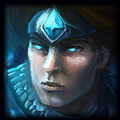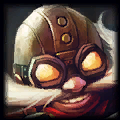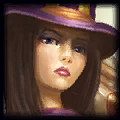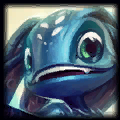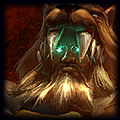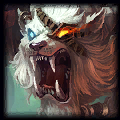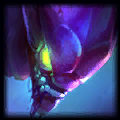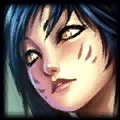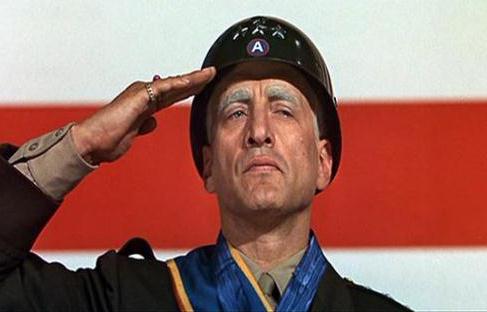Welcome to the first team strategy piece for
League of Legends. In this article, the role of the leader, and specifically, how this role fits into the strategy for this game, will be discussed. Now, you might be flipping through your list of champions, seeing which one is marked as "leader." You won't find this, though, since the leader is a person, not a champion, and that person is not necessarily the tank or the carry.
Role of the leader
The leader is the play-caller for his team, just like the point guard in basketball or the quarterback in American football. The leader calls the majority of significant team decisions. That could start as early as team formation, where the leader could be influential in deciding the team composition. Of course, that's not as easy in solo queue, but team composition should definitely be considered before picking in any premade game where you plan on playing seriously. In draft mode, this includes bans and swaps.
One of the worst mistakes you can make in serious premades is not building a synergistic team composition.



 Pro team comp, amirite?
Pro team comp, amirite?
Hint: No. More on that soon.Ingame, the leader calls the shots early-game. Do you invade the jungle? If so, where? Do you protect your jungler? How are the lanes assigned? These early steps can give jungle dominance and possibly the coveted first blood if executed properly.
During laning, the leader is likely less active in terms of teamwork communication, particularly if soloing, simply because his or her attention is focused on laning. A good leader might be able to call out warnings about junglers or roamers, or monitor other lanes' status occasionally. The leader can assist with communicating actions such as bringing mid down to bottom lane for a four-man gank into a tower push or dragon attempt, but their impact begins to be felt more heavily as teams begin to move in groups and teamfights begin.
The leader might issue commands like "4 of us distract mid while TF pushes top" or "Move to river bush by baron" or "Ward dragon, then cover Anivia at blue." The leader directs the team towards their near-term and short-term objectives and makes sure they are achieved. If plans go sour, the leader comes up with new ones. The leader calls when to push, when to teamfight, when to retreat, and when to get everyone's sorry hide over to Baron ZOMG RIGHT NAO.
Qualities of the leader
The leader must possess five skills to be truly effective.
- S/he must identify and find methods of attaining objectives in the game
- S/he must be able to work with and command respect from his team
- S/he must possess extensive knowledge of League of Legends and its strategies
- S/he must be willing to let someone else lead if they are better at it
- S/he must be right most of the time
A leader who cannot look at the big picture won't be able to guide their team to the right priorities, be it taking a tower, retreating, warding strategic spots, or seizing buffs such as Dragon/Baron/Lizard Elder/Ancient Golem. The leader must keep their eye on the big-picture strategic aspects of the game while constantly adjusting to the changing tactical circumstances.
A leader who cannot work well with their team and command their respect will be ignored. Rude, constantly denigrating, or enraged behavior will not be as effective in the long run. Players will put up with a certain amount of that, and to an extent that is dependent on how successful the leader is, but that patience is not infinite. If somebody screws up, let them know once, and then move on. If you have a bad game, talk it out after the game, sort out the issues in as calm of a manner as possible, then let it go and either take a break or start the next game. Don't ruin your premade’s partnership over a couple bad games. And if you do make a fool of yourself as the leader through your words, apologize and make amends. Even the most capable player and leader can have a negative impact on his team through his rough words.
Historically speaking, one of America's most brilliant generals in World War II, George Patton, was forced to apologize to a soldier after accusing him of cowardice and slapping him across the face. His controversial actions may have very well cost him a larger role in the D-Day invasions, despite his military prowess.
A leader who doesn't know the intricacies of
League of Legends won't know what decisions to make. Let's say you see the enemy team sitting in their jungle. Do you invade and go for a level 1 teamfight? Do you know who is likely to win? Do you know when dragon respawns? Do you know from experience when to retreat and when to push? A good leader knows all of these things.
A good leader also recognizes when their own skill is inferior to someone else on the team and lets them take charge. Having two leaders generally leads to "duel commands" rather than "dual commands." Learn to shut up and be a good follower before insisting that you can lead. Chances are, there are people better than you that play this game.
And lastly, a leader has to be good at what they do. A leader who is wrong consistently simply won't win games, which does not endear that person to their premade teammates.
Role of the follower
The other members of the team are just as important. They have their own responsibilities.
- Follow the leader's instructions. This implies some element of trust, or at least respect for their ability. Unless they are demonstrably wrong, do what they say if they're a good leader.
- Communicate information to them. Leaders need information to make fully informed decisions. They need wards in strategic areas. They really like Clairvoyance. They need the team telling them things like "Oh, Fiddles is mia." They need to know that Amumu has 25 seconds before Curse of the Sad Mummy is up. Voice chat is extremely helpful for this.
- Take initiative in the absence of instructions or to correct bad calls. There are times where the leader isn't calling plays or is otherwise distracted. Show some initiative and do what you need to win the game. The leader is likely not going to micro-manage you at all stages of the game, especially laning, so don't rely on them to do so.
- Don't get too angry when they screw up. Leaders are human, they make mistakes. If you can correct them before it costs your team, do so as gently as possible while getting your point across. If it costs your team an objective, or a teamfight, or a game, let the leader know about the mistake, but don't beat them over the head with it continually.
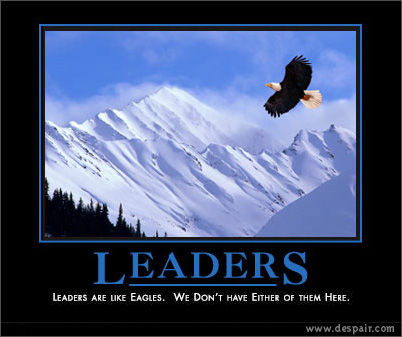
Do we really need a leader?
"As for raising your rating, the thing I've found most impactful in my games is taking charge and making calls. Getting your team to take dragon when bottom lane is pushed, knowing when to do/defend/bait baron, etc."
--PhreakIn solo queue, it's going to be hard enough to get teammates to group up and push. If you can take charge of a solo queue game in a civil and effective fashion, then do it, but don't count on teammates to consistently follow suit.
In premades, having an effective, rational leader can do wonders for team coordination. And teamwork wins games. One of the
critiques of CLG, the reigning champs at last year's WCG, in the Season 1 championship qualifiers was their lack of good play-calling. So yes, your premade will definitely benefit from a leader. It's better if your leader is chosen in advance--while spontaneous leadership can occur, it's preferable that everyone recognizes and knows ahead of time who's calling the majority of the plays.
It's just as important of a role as a carry, support, tank, mage, or jungler. A good leader can be playing any kind of champ--I've seen Sonas and Jannas call plays for a team. I tend to think that carry and tank players, because they initiate or do the most damage, gravitate towards leadership roles, but it could be any role. The key concept is to have a recognized leader, because it greatly facilitates team cohesion.
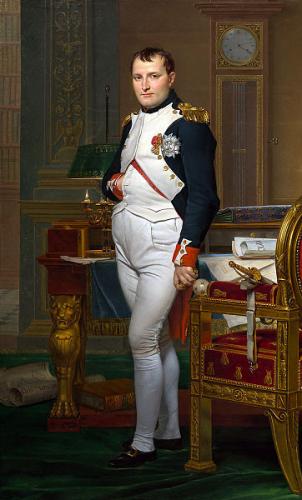 Leadership is the key to any victory. I mean, teamwork is the key to any victory. Er, leadership AND teamwork. You know what I mean.
Leadership is the key to any victory. I mean, teamwork is the key to any victory. Er, leadership AND teamwork. You know what I mean.
